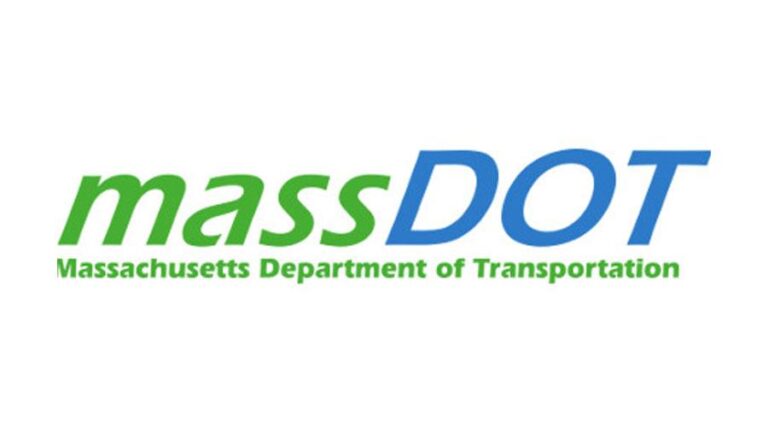The Massachusetts Department of Transportation (MassDOT) has officially approved an ambitious $18.5 billion five-year capital plan aimed at enhancing the state’s transportation infrastructure. This thorough investment strategy is set to fund critical projects across highways, bridges, public transit, and rail systems, reflecting a important commitment to modernizing and improving connectivity throughout Massachusetts. The plan highlights the state’s focus on sustainable growth and aims to support economic growth and improve quality of life for residents over the next half-decade.
Table of Contents
- Massachusetts DOT Unveils Ambitious Infrastructure Upgrades Across State
- Focus on Public Transit Expansion Aims to Reduce Congestion and Emissions
- Strategic Road and Bridge Repairs to Enhance Safety and Long-Term Durability
- Experts Recommend Accelerated Funding for Sustainable Transportation Initiatives
- In Summary
Massachusetts DOT Unveils Ambitious Infrastructure Upgrades Across State
The Massachusetts Department of Transportation (MassDOT) has greenlit an unprecedented $18.5 billion capital investment plan, set to span the next five years and revolutionize transportation infrastructure across the Commonwealth. This multi-billion-dollar commitment aims to enhance roadways,bridges,and public transit systems with a sharp focus on safety,sustainability,and modern efficiency. The strategy emphasizes upgrading aging structures while integrating advanced technologies to meet future mobility demands and reduce environmental impact throughout the state.
Key priorities outlined in the plan include:
- Repair and replacement of hundreds of bridges and major highways to ensure reliable and safe travel for millions daily
- Expansion and modernization of public transit networks, including upgrades to rail and bus systems to boost accessibility and reduce traffic congestion
- Investment in innovative transportation technology, such as intelligent traffic management and electric vehicle infrastructure to support Massachusetts’ climate goals
- Enhanced pedestrian and cycling infrastructure designed to promote healthier, greener alternatives for short-distance travel
State officials have underscored that this comprehensive effort will position Massachusetts as a national leader in infrastructure renewal, fostering economic growth and improving quality of life for its residents.
Focus on Public Transit Expansion Aims to Reduce Congestion and Emissions
Massachusetts is set to considerably enhance its public transportation infrastructure through this ambitious capital plan. The strategy prioritizes expanding transit options with the goal of alleviating chronic road congestion and reducing harmful emissions across urban and suburban areas. Investments will focus on upgrading rail lines, extending bus rapid transit corridors, and integrating advanced technology to improve service efficiency and rider experience.
Key initiatives include:
- New rail and bus routes to connect underserved communities and reduce reliance on personal vehicles.
- Electrification of existing transit fleets to cut down greenhouse gas emissions and improve air quality.
- Modernized transit stations designed to enhance accessibility and safety for all passengers.
By channeling funds into these targeted projects, the plan aims to create a more sustainable, equitable transportation network that supports Massachusetts’ long-term environmental and urban mobility goals.
Strategic Road and Bridge Repairs to Enhance Safety and Long-Term Durability
Massachusetts Department of Transportation has prioritized a robust approach to the state’s roads and bridges, earmarking significant funds to address critical infrastructure needs. The plan focuses on targeting high-risk areas with comprehensive repairs and upgrades designed to mitigate safety hazards and extend the lifespan of key transport corridors. By integrating innovative materials and modern engineering techniques, the initiative aims to reduce long-term maintenance costs while enhancing travel reliability for millions of residents and commuters.
This ambitious strategy includes:
- Systematic evaluation and rehabilitation of structurally deficient bridges
- Implementation of durable surface treatments on major roadways
- Enhanced inspection protocols to preemptively identify potential failures
- Coordination with local agencies for seamless project execution
These efforts underscore MassDOT’s commitment to fostering safer,more resilient infrastructure capable of supporting Massachusetts’ economic vitality and public welfare over the next several decades.
Experts Recommend Accelerated Funding for Sustainable Transportation Initiatives
Leading transportation and environmental experts are urging Massachusetts policymakers to expedite funding allocations within the newly approved $18.5 billion capital plan. They emphasize that accelerating investments in sustainable transportation projects is crucial to meet the state’s climate goals and reduce carbon emissions effectively. Rapid deployment of resources toward electrification of public transit, expansion of bike lanes, and enhancement of pedestrian infrastructure will not only address environmental concerns but also improve urban mobility and accessibility.
Key recommendations from specialists include:
- Prioritizing grants and incentives for electric vehicle infrastructure development
- Increasing funding for innovative transit technologies such as zero-emission buses and smart traffic management systems
- Accelerating the restoration and modernization of rail lines to promote mass transit use
- Enhancing partnerships between state agencies and private sector innovators to scale solutions faster
Experts argue that by hastening the pace of funding deployment, the Commonwealth can create a resilient and future-ready transportation network that supports economic growth while aligning with sustainability targets.
In Summary
The Massachusetts Department of Transportation’s approval of the $18.5 billion five-year capital plan marks a significant milestone in the state’s commitment to modernizing its infrastructure. With investments aimed at enhancing transportation safety, efficiency, and sustainability, this ambitious plan is set to shape the future of mobility for millions of residents and visitors. As implementation progresses, stakeholders across the Commonwealth will be watching closely to see how these projects transform the state’s transportation landscape in the years ahead.

